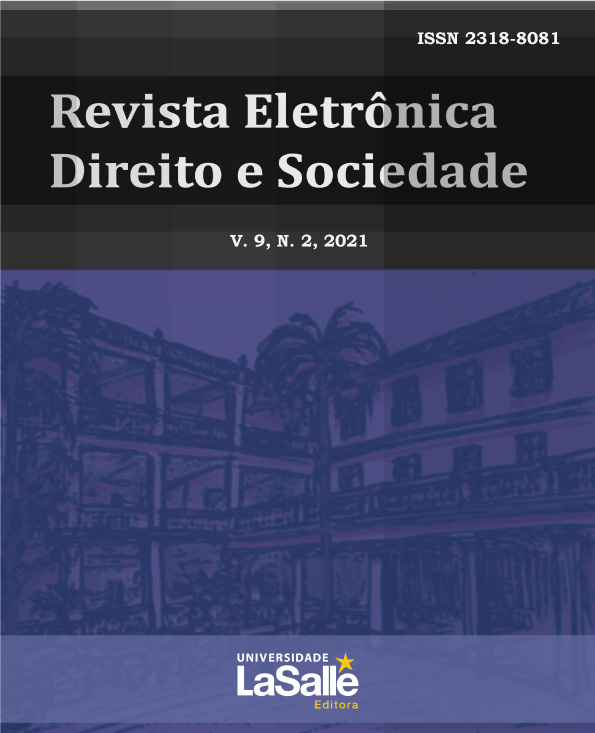A vacinação obrigatória como um dever constitucional e um direito fundamental coletivo: saúde pública versus liberdade individual em tempos de pandemia da COVID-19
DOI:
https://doi.org/10.18316/redes.v9i2.8047Palavras-chave:
Restrições a direitos fundamentais, Vacinação obrigatória, Direito fundamental coletivo, COVID-19, Pandemia.Resumo
O objetivo do presente artigo é analisar a obrigatoriedade da vacinação, considerando-a um dever constitucional e um direito fundamental coletivo, reconhecendo-se a possibilidade de se estabelecer certas restrições às liberdades individuais em tempos de pandemia da COVID-19, visando a manutenção da saúde pública, direito pertencente não apenas ao indivíduo, mas também à coletividade. A pesquisa justifica-se diante da situação pandêmica que vem atingindo o mundo todo, com consequências ainda desconhecidas e de grandes proporções, além de se mostrar importante a abordagem das limitações à direitos fundamentais, diante do questionamento social acerca da possibilidade de restrição a certas liberdades individuais, sob a alegação da prevalência de direitos coletivos e sociais. Valendo-se do método dedutivo e de pesquisas bibliográfica e documental, conclui-se que a restrição à direitos e liberdades individuais é admissível, visando assegurar a saúde pública e direitos da coletividade em tempos de pandemia, sendo que a vacinação obrigatória pode ser reconhecida, desde que ela seja acompanhada de algumas informações, como componentes e contraindicações, para que não fira a dignidade da pessoa humana.
Downloads
Publicado
Edição
Seção
Licença
Autores que submetem seus manuscritos para serem publicados na Revista REDES concordam com os seguintes termos:
Os autores declaram ter ciência de que mantém os direitos autorais concedendo à REDES o direito à publicação.
Os autores declaram ter ciência de que o trabalho submetido será licenciado sob a Licença Creative Commons atribuição não-comercial que permite o compartilhamento do artigo com reconhecimento da autoria e publicação nesta revista.
Os autores declaram ter ciência que em virtude de os artigos publicados nesta revista tem acesso público e gratuito.
Os autores declaram, sob as penas da lei, que o texto é inédito e original e que têm ciência de que identificada a existência de plágio, os autores plagiados serão informados – para querendo, tomarem as medidas legais nas esferas cível e criminal – e, os autores do plágio terão seu acesso à revista bloqueado.
Os autores declaram que – em caso de coautoria – todos contribuíram significativamente para a pesquisa.
Os autores obrigam-se a fornecer retratações e (ou) correções de erros em caso de eventual detecção.
Os autores obrigam-se a não publicar o texto submetido a REDES em outra Revista eletrônica (ou não).

A Revista Eletrônica Direito e Sociedade - REDES - está licenciado com uma Licença Creative Commons Atribuição-NãoComercial 4.0 Internacional.
Baseado no trabalho disponível em http://revistas.unilasalle.edu.br/index.php/redes/about/submissions#copyrightNotice.
Podem estar disponíveis autorizações adicionais às concedidas no âmbito desta licença em http://creativecommons.org/.

